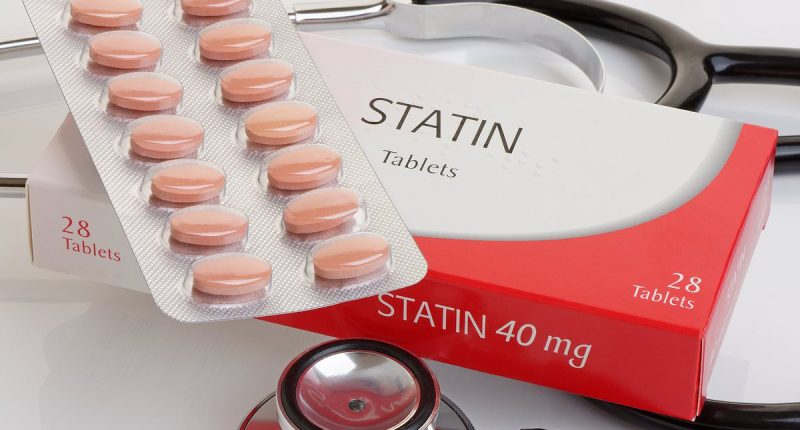Share this @internewscast.com
Taking statins can improve the chances of surviving sepsis by 40 per cent, a trial has found.
Sepsis can occur when the body’s immune system overreacts to an infection and attacks its own organs.
It is notoriously difficult to spot because the telltale symptoms, such as a fever and muscle pain, can be easily mistaken for signs of a common cold or other infection.
Statins lower cholesterol to prevent heart attacks and strokes and are taken by around 5 million adults in the UK.
But experts say they have other benefits, including reducing inflammation and fighting bacteria that can ultimately lead to sepsis.
The study compared survival rates of sepsis patients given statins and those who were not during a hospital stay.
It found the pills reduced the risk of death for those critically ill with the condition by 39 per cent.

Taking statins can improve the chances of surviving sepsis by 40 per cent, a trial has found. Statins lower cholesterol to prevent heart attacks and strokes and are taken by around 5 million adults in the UK (file image)

The study compared survival rates of sepsis patients given statins and those who were not during a hospital stay. It found the pills reduced the risk of death for those critically ill with the condition by 39 per cent (file image)
In intensive care, 14.3 per cent of 6,000 sepsis patients given statins died within 28 days, compared with 23.4 per cent of 6,000 patients who were not.
For those no longer in a critical condition, 11 per cent given statins died compared to 19 per cent who were not.
Dr Caifeng Li, of Tianjin Medical University General Hospital in China and the study’s author said: ‘These results suggest that statins may provide a protective effect and improve clinical outcomes for patients with sepsis.’
Researchers believe the drugs may help with sepsis by helping to combat bacteria directly, reducing the toll infection takes on the body.
Earlier this year another study found the pills could also slash dementia risk – even in patients who don’t have high cholesterol.
The sepsis study, published in the journal Frontiers in Immunology, was based on data from thousands of patients at an Israeli hospital over a decade.
Dr Ron Daniels, founder and chief executive of the UK Sepsis Trust, said: ‘This study supports calls for a large, multi-country, randomised control trial.

The sepsis study, published in the journal Frontiers in Immunology, was based on data from thousands of patients at an Israeli hospital over a decade (file image)
‘Anything which might reduce the burden of a condition which claims one in five lives worldwide needs to be rigorously explored.’
Sepsis is known as the ‘silent killer’. For every hour of delay in treatment, a patient’s chance of dying increases 8 per cent.
If caught early, it can be treated with antibiotics and fluids.
Symptoms include slurred speech or confusion, shivering or muscle pain, passing no urine in a day, severe breathlessness and mottled or discoloured skin.
Blood test to spot Alzheimer’s early
A Blood test for Alzheimer’s can accurately detect the disease early, a study suggests.
The test was 95 per cent accurate in identifying people with memory problems.
It also scored 82 per cent for specificity, which means it was highly accurate in ruling out people without dementia.
The study, published in the journal Alzheimer’s and Dementia, found proteins amyloid beta 42/40 and p-tau217 in blood plasma can be examined to diagnose the condition.
The study was carried out on more than 500 people in an outpatient memory clinic.
The blood test has already been approved by the Food and Drug Administration regulator in the US.













